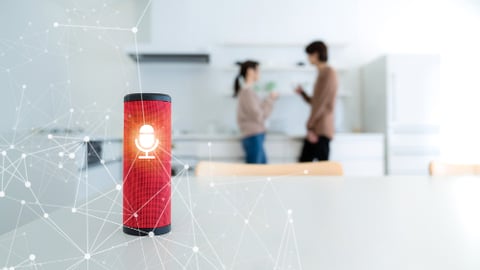Grocery Ecommerce Sales in 2018 Soar Due to Consumer Confidence
Grocery ecommerce sales saw dramatic growth in 2018, likely helped by the majority of American households reporting a healthy financial standing, according to new research from Chicago-based data and market research firm IRI.
IRI's new "Consumer Confidence Reflected in E-Commerce Growth" research found that consumer packaged goods (CPG) ecommerce sales grew 35.4 percent in 2018. Meanwhile, nearly 55 percent of consumers reported their households to be in good financial shape in quarter four of last year, up 4 percent from the previous quarter and 2 percent from the same period a year prior, the latest IRI Consumer Connect survey results revealed.
Consumers are increasingly comfortable with online purchasing, and retailers of all stripes are upping their online offerings, working to enhance the shopper experience with simple navigation, assortment, good values and delivery options, IRI noted.
"Pure-play retailers garner more than half of all online CPG purchases, but traditional brick-and-mortar retailers continue to invest and win share of the ecommerce pie," said Sam Gagliardi, head of ecommerce for IRI. "It is incumbent upon the future success of these traditional retailers to invest in the shopper experience both in-store and online."
The report also found that:
-
Nonfood items, particularly personal care and home care products, are tops in online purchases: IRI E-Market Insights reported that vitamins, pet food and supplies, and skin care products sell most. This is because pet food and supplies are often bulky and inconvenient to purchase off store shelves, while vitamins, typically purchased for specific health benefits, are likely considered easier to shop for online through keyword searches and with access to additional information.
-
Q4 Consumer Connect survey respondents said that buying online allows them to find lower-priced beauty and personal care product options: 29 percent of total U.S. consumers, 45 percent of Millennials, 35 percent of Gen Xers, 27 percent of Boomers and 14 percent of seniors. These results closely mirror those on home care products, with 30 percent of total consumers, 43 percent of Millennials, 36 percent of Gen Xers, 27 percent of Boomers and 19 percent of seniors saying that they find lower-priced options online.
-
While fresh and frozen items rank among the bottom ecommerce sales categories, there are signs of significant growth, indicating that retailers, likely with the support of such flexible options as click-and-collect, are starting to crack the code on delivering fresh and frozen items via online.
-
Millennials and Gen Xers, the two generations most likely to find value in shopping online, are also the generations that report having the most difficulty affording needed groceries (34 percent of Millennials, 36 percent of Gen Xers). Some 54 percent of Millennials and Gen Xers said that they're less likely to make impulse purchases when buying online. With this in mind, ecommerce should be touted as a tool for helping shoppers stick to their budgets.
-
Some 38 percent of all consumers like ordering online and picking up in the store, because it's convenient and a good way to avoid shipping fees. In fact, 49 percent of Millennials, 48 percent of Gen Xers, 38 percent of boomers and 24 percent of seniors feel the same.
-
In addition to purchases of bulky or heavy items, such as pet food, shoppers are increasingly going online for more sensitive purchases. IRI E-Market Insights reports that gastrointestinal and adult incontinence products are among the largest ecommerce growth categories.
"Ecommerce sales will continue to climb in 2019 and beyond, with retailers increasingly investing in better ways to engage shoppers, including with improved navigation and mobile access, delivery and payment options, and endless-aisle assortments," added Gagliardi.




